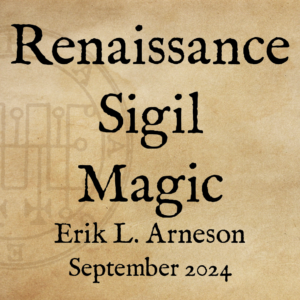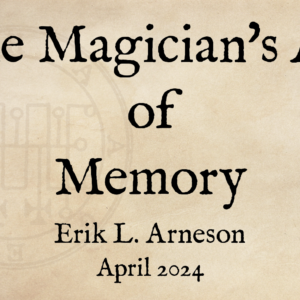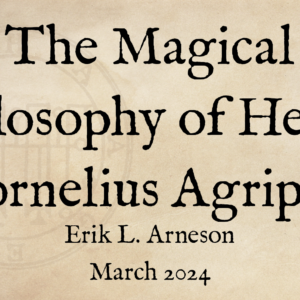Through all of my writing on Hermeticism and Hermetic philosophy on this blog, I’ve recommended a number of books. In this post, I’ll pull them all together to create a reading list for those interested in the subject.
Category: Hermeticism
Ritual meals are an ancient human tradition, dating back at least 12,000 years. When it comes to Hermetic tradition, such as it is, the Asclepius or Perfect Discourse has vague instructions and a prayer for a ritual meal in its final chapter.
Back in March, I had a conversation with Jeremy Crow in episode 28 of My Alchemical Bromance. We discussed the Left Hand Path (LHP), about which I had only a surface understanding before we really dug into it. While there are multiple ways to differentiate between the two paths, we focused on one in particular… Read more »
There is a fundamental difference between the nature of God described by The Kybalion and that in the Hermetica. Learn more as we dive into these two works and explore their mysteries.
Who is Asclepius? In addition to being a figure from Greek mythology, Asclepius has an entire book of the Hermetica named after him. Let us take a look at this important Hermetic personality and learn more about who he is and why he’s important to Hermetic philosophy.
How is monotheism addressed in ancient Hermetism? The Corpus Hermeticum and other Hermetica talk about God all the time, so let’s take a look at the Hermetic views on God and what monotheism means in that ancient religion. Scholars have been working to categorize the various views of God and divinity in the Hermetica for years. There are two general categories that most use: optimistic monist and pessimistic dualist.
What is the difference between Hermetism and Hermeticism? When you start studying the Hermetic tradition and Hermetic philosophy, you will run across both of these terms. Let’s learn what the difference is.
Hermeticism is based on the teachings of a mysterious man named Hermes Trismegistus. He is portrayed as a wise teacher, a powerful magician, and a skilled mystic. He has been seen as a teacher of Moses, the inventor of alchemy, and the founder of occult schools throughout history.
Many religious or spiritual systems dealing with mystical experiences have a concept of gnosis. It is contrasted with rational knowledge in that it is based on a personal and usually profound experience, and is set apart from faith in that it doesn’t appeal to a sense of acceptance or emotional argument.
The most well-known saying from Hermeticism is the Hermetic axiom, “As above, so below.” This is a simplified version of a verse from the Emerald Tablet. What does this enigmatic statement mean? It is an expression of an idea which is found across religions and spiritual traditions.





